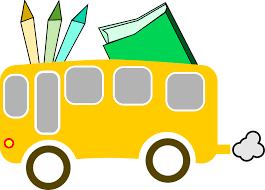
If you have children getting ready to return to classes, one of the most important things to be sure of is that your vehicle is prepared for the extra travel time. Whether you are a working single parent, or a working married couple, you will be relying on your vehicle to get you where you “need” to go. In Virginia we are required to have an annual Virginia State Inspection. This not only insures the vehicle is safe for the owner to drive it protects other motorists as well. While everything associated with a Virginia State Inspection has to be checked off in order to receive a valid sticker, the primary items involve the following:
1) Tires should be in good condition with correct manufacturers specified tire pressure (usually found on driver’s door jamb) adequate tread, no cords showing, and no worn edges so that in the event of heavy rain they are able to pass water between the treads to avoid hydroplaning and not slide when turning. All tires have date codes on them and if the tires are more than 5-7 years old (10 max.) replacement is recommended regardless of how much tread is remaining. (This is not a State Inspection requirement, however it is recommended by most tire manufacturers).
2) Brake linings, brake hoses, steel lines and parking brakes should be checked during routine vehicle service. Sticking parking brakes, low brake linings, leaking calipers, wheel cylinders, leaking axle seals or heavily rusted brake lines are cause for concern and should be addressed immediately. If the brakes smell hot or the vehicle is pulling when braking, have it checked.
3) Wiper blades are a simple item, but we rarely bother to notice them until we need them most. Make sure the blades are not dry-rot, or torn, and the windshield is cleaned well. A good application of Rainex will help immensely. Also be sure your windshield washer fluid is full and system operational.
4) Be sure all lights are working, headlights (high and low beam), turn signals, brake lights, parking lights, reverse lights and license plate lights. If you have lights that aren’t operating, get them fixed. Most headlights today have plastic lenses over the bulbs that haze over as they age. It is highly recommended to have the lenses refinished by polishing so distance vision is restored.
5) Steering and suspension should be checked for worn or missing parts. Torn steering rack or CV boots, excessive play and any “knocking” or “clunking” noises should be investigated carefully. Shocks and struts should be inspected for operation, leaks, and worn bushings. Loose or worn wheel bearings should be repacked or replaced as needed. U-joints and drive shafts should be checked and lubricated where applicable.
The previous items are some of the most important and each of those can be expanded on, however there are many others that should be noted. The following additional items should be in proper working order: Seat belts, seat operation, windows, door handles, and lock operation, parking brake, mirrors, horn, and defrost/heat. Warning lights on the dash should not be ignored and should be investigated and whatever systems are affected repaired.
I hope your summer has been great and the return to school is a smooth transition. Preparation is the key on all fronts. Please keep us in mind to help in any way we can.